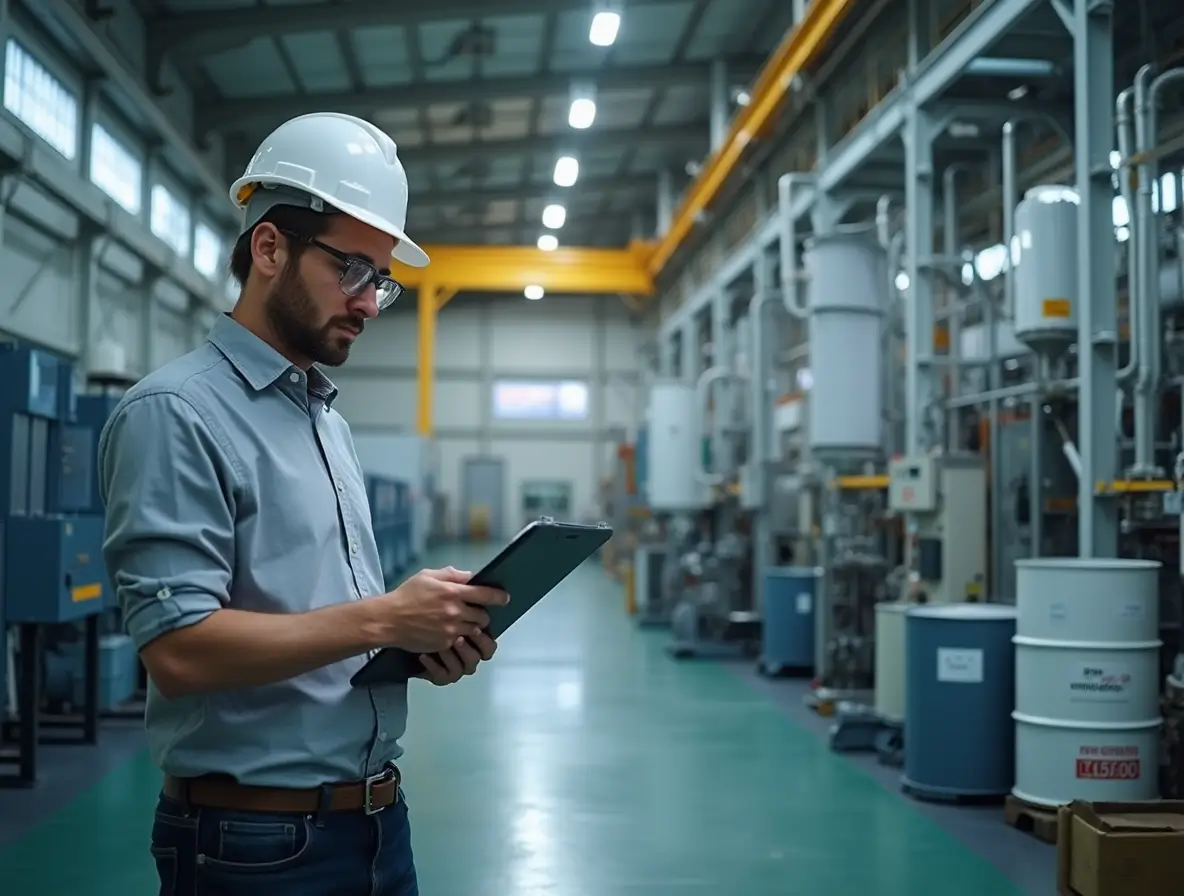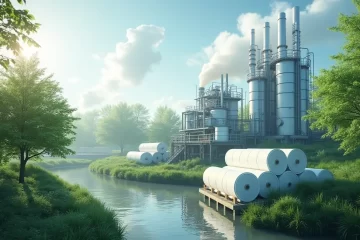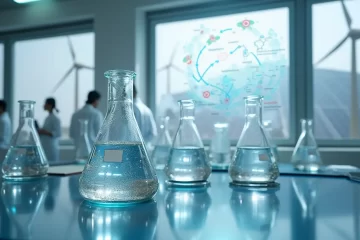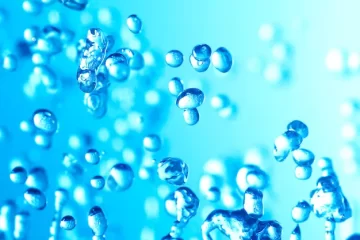Understanding Regenerated MMA Monomers: A Brief Overview
Regenerated methyl methacrylate (MMA) monomers are the result of advanced recycling processes designed to recover and refine MMA from end-of-life polymethyl methacrylate (PMMA) products. This innovative approach combines sustainability with functionality by reducing waste and minimizing the environmental impact associated with virgin MMA production. Key techniques, such as thermal depolymerization, enable the decomposition of PMMA into high-purity MMA monomers suitable for reuse.
Characteristics of regenerated MMA include:
- Comparable quality to virgin MMA monomers.
- Reduced carbon footprint during production.
- Cost-effective, especially for large-scale manufacturers.
These monomers are ideal for industries seeking greener alternatives without compromising material performance or durability. Their adoption also supports circular economies by closing the polymer lifecycle loop effectively.
Why Traditional MMA Monomer Manufacturing May Be Falling Short
Traditional methods of manufacturing MMA (methyl methacrylate) monomer often generate significant environmental concerns due to high energy consumption and reliance on petrochemical raw materials. Additionally, these processes frequently produce higher amounts of waste and emissions, which contribute to environmental degradation.
Economic inefficiencies further arise from volatile pricing of raw materials and limited scalability, leaving manufacturers vulnerable to fluctuations in global markets. Moreover, rigid production techniques offer limited flexibility to accommodate advancements in sustainable practices.
As industries increasingly prioritize eco-conscious solutions, traditional approaches struggle to meet evolving regulatory standards and corporate sustainability goals. This growing disconnect drives the pressing need for innovative alternatives like regenerated MMA monomer manufacturing.
Environmental Benefits of Switching to Regenerated MMA Monomers
Switching to regenerated MMA monomers offers a multitude of environmental benefits by reducing reliance on virgin materials and minimizing carbon emissions associated with traditional production methods. Regenerated monomers often require fewer raw materials, conserving natural resources and lessening environmental depletion. The process typically involves recycling and reprocessing, which diverts waste from landfills and supports a circular economy.
Moreover, manufacturers adopting regenerated MMA benefit from reduced energy consumption during production compared to conventional methods. This translates into lower greenhouse gas emissions, aiding in climate change mitigation. The sustainable approach aligns with global efforts to achieve net-zero goals and supports eco-friendly manufacturing practices.
Cost Efficiency: How Regenerated Manufacturers Save You Money
Regenerated MMA monomer manufacturers offer significant cost advantages compared to traditional producers. By using recycled raw materials and efficient production processes, they reduce the dependency on newly sourced resources, which often involve higher procurement costs. This streamlined approach minimizes waste and energy consumption, directly lowering production expenses.
Buyers benefit from competitive pricing structures without compromising the quality of the final product. Additionally, bulk purchasing options and customized solutions further amplify cost savings. Through advanced techniques, manufacturers ensure consistent product performance, reducing the frequency of replacements or repairs. Transitioning to regenerated suppliers is an economically sustainable choice for businesses seeking long-term financial efficiency.
Improved Product Quality with Regenerated MMA Monomers
Regenerated MMA (Methyl Methacrylate) monomers offer enhanced purity and consistency, leading to superior product quality in manufacturing applications. Their advanced regeneration process reduces impurities that can compromise performance, ensuring a more stable and reliable end product. Many industries benefit from using MMA monomers with consistent molecular structure, enabling precise formulation during production.
Manufacturers adopting regenerated MMA enjoy several advantages:
- Enhanced Durability: Products exhibit greater resilience due to the refined raw material quality.
- Improved Appearance: Reduced impurities result in smoother finishes and clearer optics in applications such as acrylics and coatings.
- Reliable Performance: Higher-quality inputs contribute to consistent performance across different manufacturing batches.
By leveraging regenerated MMA monomers, organizations can achieve stringent quality standards while optimizing resources effectively.
Sustainability as a Business Advantage: Stay Ahead of Industry Trends
Switching to regenerated MMA monomer manufacturers aligns with global sustainability goals while positioning businesses as leaders in environmental stewardship. Companies gain a competitive edge by integrating green alternatives, enhancing brand reputation, and appealing to eco-conscious consumers. Adopting sustainable practices reduces energy consumption, lowers greenhouse gas emissions, and minimizes waste, which are critical as regulatory policies become stricter.
Partnerships with forward-thinking manufacturers ensure access to innovative solutions that improve operational efficiencies and product performance. As sustainability dominates industry trends, companies that adapt swiftly not only meet compliance but often surpass expectations, fostering market differentiation and long-term growth.
Customer Demands and Shifting Preferences Toward Eco-Friendly Materials
The evolving landscape of consumer preferences highlights a growing demand for sustainable solutions in various industries. Customers increasingly prioritize environmentally responsible products, driving manufacturers to adapt their material choices accordingly. Regenerated MMA monomer manufacturers, known for their eco-friendly alternatives, cater to this pressing demand by reducing waste and minimizing environmental impact.
Organizations leveraging these materials can position themselves as leaders in sustainability, aligning with consumer expectations and global trends. Industries such as automotive, construction, and packaging have responded to these preferences by integrating regenerated MMA into their processes. This shift promotes long-term value creation and enhances brand reputation through eco-conscious practices.
Performance Factors: Comparing Traditional vs. Regenerated MMA Monomers
When evaluating performance, notable distinctions arise between traditional MMA monomers and regenerated alternatives. Traditional monomers are derived directly from raw materials, ensuring stability and consistency in chemical composition. Regenerated MMA monomers, however, are sourced via complex recycling processes that retrieve usable MMA from products like scrap plastics and spent materials.
Factors influencing performance include purity levels, thermal stability, and polymerization behavior. Traditional monomers typically offer higher purity, whereas regenerated variants may exhibit minor impurities, depending on processing refinement. Regeneration boosts environmental sustainability but can slightly affect performance under extreme conditions. Transitioning demands careful assessment of application-specific requirements and desired cost-effectiveness.
Regulatory Compliance Made Easy with Sustainable Manufacturers
Partnering with regenerated MMA monomer manufacturers simplifies adherence to regulatory standards by leveraging their advanced sustainability practices. These manufacturers often align with environmental certifications and industry-specific compliance regulations, ensuring compatibility with global and local requirements. Businesses benefit from risk mitigation, as these suppliers proactively address emissions, waste management, and circular production protocols.
- Key Compliance Features:
- Reduction of environmental impact through closed-loop systems.
- Integration of ISO certifications for quality and environmental standards.
- Support for green-building initiatives like LEED and BREEAM.
Such partnerships enhance corporate responsibility and bolster competitive advantage by meeting stringent regulations without compromising productivity or innovation.
Case Studies: Businesses Thriving After Switching to Regenerated MMA Monomer Suppliers
Leading manufacturers in the automotive and construction industries have reported significant improvements after transitioning to regenerated MMA monomer suppliers. Many cited cost-effectiveness as a driving factor, with reduced raw material expenses impacting their bottom lines positively.
- Automotive Sector: A prominent global car manufacturer noted enhanced quality and durability in their acrylic components, aligning with stricter environmental standards without inflating costs.
- Construction Sector: A building materials company reduced production costs, accelerating project timelines and enabling broader market penetration.
These real-world examples demonstrate that switching suppliers can lead to superior product performance, elevated sustainability credentials, and improved operational efficiency.




